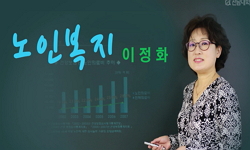This thesis aimed at investigating an aspect of the old people or old age through Chu ksu(祝壽)and relevant writes. Considering that the relevant research has not been accumulated yet, above all, this research investigated literary tradition of Chu ...
http://chineseinput.net/에서 pinyin(병음)방식으로 중국어를 변환할 수 있습니다.
변환된 중국어를 복사하여 사용하시면 됩니다.
- 中文 을 입력하시려면 zhongwen을 입력하시고 space를누르시면됩니다.
- 北京 을 입력하시려면 beijing을 입력하시고 space를 누르시면 됩니다.

축수(祝壽)의 문학적 전통과 노년 인식 = Study on Literary Tradition of Chuksu祝壽: an celebration for longevity and Recognition on the Old Age
한글로보기https://www.riss.kr/link?id=A101965492
- 저자
- 발행기관
- 학술지명
- 권호사항
-
발행연도
2016
-
작성언어
-
- 주제어
-
KDC
800
-
등재정보
KCI등재
-
자료형태
학술저널
-
수록면
37-62(26쪽)
- DOI식별코드
- 제공처
-
0
상세조회 -
0
다운로드
부가정보
다국어 초록 (Multilingual Abstract)
This thesis aimed at investigating an aspect of the old people or old age through Chu ksu(祝壽)and relevant writes. Considering that the relevant research has not been accumulated yet, above all, this research investigated literary tradition of Chu ksu on the whole, then considered various levels of cognition on the old age through a series of poetry that had been composed based on such tradition. Chu ksu culture, which had existed before the Chun qiu(Spring and Autumn) Period advanced into the literature area by greatly prospering mainly with Gangnam area during Wei jin period(魏晉時代). Henceforth, until Song Dynasty, verse such as Su-si(壽詩), Su-sa(壽詞) had mainly been used, however since Su-seo(壽序) in Ming Dynasty, prose was mainly used to express the meaning of prayer. Such change process shows that individual desire could be integrated with social desire. It is significant in respect that it drew human internal essential desire, longevity, to a place of social discussion. There are various recognitions on the old age in the poetry of birthday or that wishes for longevity. It sometimes calmly looks back on the past life, sometimes reveals restlessness and grief about being a useless being, sometimes seriously thinks over how to receive death coming soon, also, was considered as an opportunity to feel liberty and sense of freedom by escaping from social demand and pressure. Old man is a social concept. The words, senility and greed imply a significance to marginalize and exclude old man. Nevertheless, old man have become an object of respect and prayer, since they were effective to reinforce ‘loyalty(忠)’, ‘filial duty(孝)’ ideology, a mechanism to operate the nation and the society. Old man were treated as the object to be supported rather than received as social members, more highly emphasizing required qualification to be supported old man, through this, upper and lower order of rank was intensified
동일학술지(권/호) 다른 논문
-
- 근역한문학회
- 한연석 ( Youn-suk Han )
- 2016
- KCI등재
-
창강 김택영의 중국체류기(中國滯留期) 한시 고찰 -디아스포라의 관점에서-
- 근역한문학회
- 이덕향 ( Deok-hyang Rhee )
- 2016
- KCI등재
-
정재학파(定齋學派)의 학(學),문(文)의 전승 연구 -와운(臥雲) 송형(宋형)을 중심으로-
- 근역한문학회
- 이홍식 ( Hong-shik Lee )
- 2016
- KCI등재
-
- 근역한문학회
- 이은영 ( Eun-young Lee )
- 2016
- KCI등재




 KCI
KCI KISS
KISS






